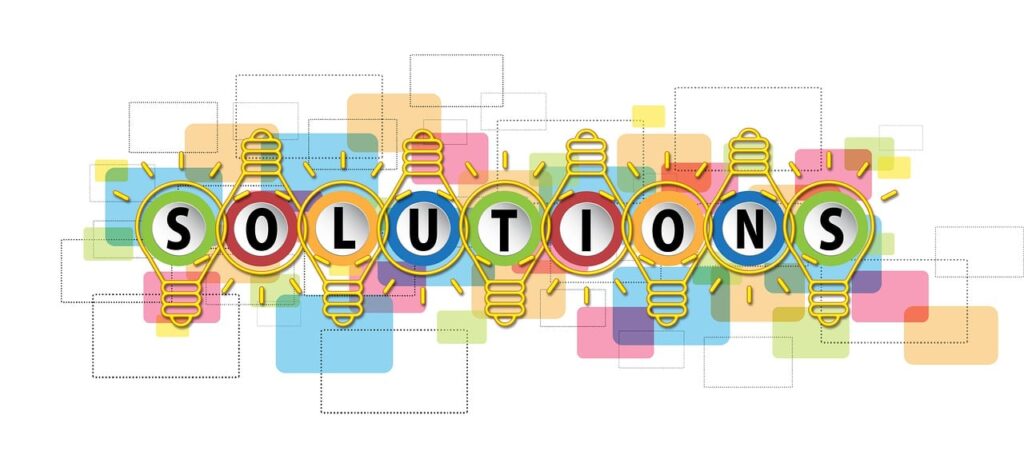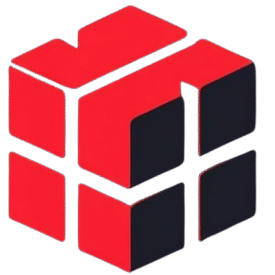Technology Solutions: Driving Innovation & Growth in Modern Businesses
In today’s hyper-connected world, technology solutions are the backbone of modern business operations. From automation and cybersecurity to cloud computing and AI, businesses of all sizes are leveraging technology to gain a competitive edge. Whether you’re a startup or an enterprise, investing in the right tech tools can streamline processes, reduce costs, and fuel growth.

What Are Technology Solutions?
Technology solutions refer to the integration of digital tools, platforms, and systems to solve business challenges or improve performance. These solutions help companies manage operations, improve customer experience, and scale efficiently.
Examples of Common Technology Solutions:
- Cloud computing services (AWS, Google Cloud, Microsoft Azure)
- Cybersecurity tools (antivirus, firewalls, encryption)
- CRM and ERP software
- Business automation platforms
- AI and machine learning systems
- Data analytics and reporting tools
Why Technology Solutions Are Important in 2025
As markets evolve and customer expectations rise, businesses need to be agile and data-driven. Technology enables this transformation. It supports remote work, enables faster decision-making, protects digital assets, and enhances customer engagement.
Benefits of Using Technology Solutions:
- Efficiency: Automates repetitive tasks and reduces human error.
- Security: Protects data from growing cyber threats.
- Scalability: Easily adjusts to business growth or changing demands.
- Cost Savings: Reduces need for manual labor or physical infrastructure.
- Competitive Advantage: Keeps your business ahead with innovation.

Top Technology Solutions for Businesses in 2025
1. Cloud Computing
Cloud-based solutions offer secure data storage, backup, and accessibility. They eliminate the need for physical servers and allow remote access across devices.
Popular Tools: AWS, Google Cloud, Microsoft Azure
2. Cybersecurity Tools
Protecting sensitive data is critical. Cybersecurity tools like firewalls, VPNs, and threat detection software keep your digital infrastructure safe.
Key Focus: Data encryption, multi-factor authentication, threat prevention
3. Artificial Intelligence (AI) & Machine Learning (ML)
AI-powered tools help businesses automate decision-making, analyze large datasets, and improve personalization in marketing and customer service.
Use Cases: Chatbots, fraud detection, predictive analytics
4. Customer Relationship Management (CRM)
CRM platforms streamline sales, marketing, and customer service operations. They help manage contacts, track leads, and boost customer loyalty.
Top Tools: HubSpot, Salesforce, Zoho CRM
5. Automation Platforms
Business process automation (BPA) tools improve operational speed and accuracy. Tasks like email follow-ups, invoicing, and reporting can be automated easily.
Tools to Try: Zapier, Make, ActiveCampaign
6. Business Intelligence & Data Analytics
Understanding your data is key to growth. Analytics platforms provide insights into customer behavior, operations, and finances to guide better decisions.
Recommended Tools: Power BI, Tableau, Google Data Studio
How to Choose the Right Technology Solutions for Your Business
Every business has unique goals, budgets, and challenges. Choosing the right tools means aligning them with your specific needs.
Key Considerations:
- Industry and size of your business
- Integration with your current systems
- Cost-effectiveness and long-term ROI
- Security and compliance (e.g., GDPR, HIPAA)
- User-friendliness and support availability

Technology Solutions by Industry
Healthcare
- EMR systems
- Telehealth platforms
- Secure patient portals
Retail & E-Commerce
- Inventory and POS systems
- Personalization engines
- Omnichannel CRM tools
Finance
- Blockchain solutions
- Digital wallets & mobile banking
- AI for fraud detection
Education
- Virtual classrooms
- LMS platforms (e.g., Moodle)
- Student progress analytics
Emerging Trends in Technology Solutions (2025 & Beyond)
1. Edge Computing
Processes data near the source, reducing latency and improving performance.
2. Green IT
Focuses on environmentally sustainable tech practices and energy-saving systems.
3. 5G Integration
Enables faster connectivity and supports IoT-driven smart systems.
4. No-Code/Low-Code Development
Empowers non-developers to build apps without complex coding.
5. Blockchain for Transparency
Enhances data traceability, especially in finance and logistics.
Conclusion: Future-Proof Your Business with the Right Technology Solutions
Whether you aim to scale operations, improve customer service, or strengthen your security, the right technology solutions are essential for success in 2025. As tech evolves, so should your business strategy. Start by identifying your needs, evaluating available tools, and implementing solutions with long-term benefits.
Need expert help choosing or implementing your tech stack?
Contact our team today for a free consultation on modern, secure, and scalable technology solutions tailored for your business.

Frequently Asked Questions (FAQs)
Q1. What are technology solutions in business?
A: Technology solutions in business refer to the use of digital tools, software, and systems to improve operations, enhance customer experience, and solve business challenges. Examples include CRM software, cloud computing, automation tools, and cybersecurity systems.
Q2. Why are technology solutions important for small businesses?
A: Technology solutions help small businesses save time, reduce costs, and scale efficiently. They improve productivity, enable remote work, enhance customer service, and provide data for smarter decisions.
Q3. How do I choose the best technology solution for my company?
A: Start by identifying your business goals, current challenges, and budget. Then, look for tech tools that align with your industry needs and are scalable, secure, and easy to integrate with your existing systems.
Q4. Are technology solutions expensive?
A: Not necessarily. Many cloud-based and subscription tools offer flexible pricing plans, including free or low-cost versions for startups or small teams. The key is to focus on return on investment (ROI), not just upfront cost.
Q5. What industries benefit the most from technology solutions?
A: All industries can benefit, but especially:
- Healthcare (with telehealth & EMR systems)
- E-commerce (inventory, CRM, automation)
- Finance (digital security, blockchain, AI)
- Education (LMS platforms, analytics)
Q6. What are examples of top technology tools in 2025?
A: Some of the most recommended tools include:
- Cloud Platforms: AWS, Google Cloud, Microsoft Azure
- CRM Software: HubSpot, Salesforce
- Cybersecurity: Norton, Bitdefender, Cloudflare
- Automation: Zapier, Make
- AI Tools: ChatGPT, Jasper, Midjourney (for specific industries)
Q7. How do technology solutions improve customer experience?
A: Tech solutions like live chat support, personalized email automation, and CRM systems help businesses respond faster, deliver tailored services, and maintain long-term relationships with customers.
Q8. Is it necessary to hire an IT consultant to implement these solutions?
A: Not always, but it helps. For complex setups (like ERP or custom integrations), a professional IT consultant ensures correct implementation, security, and scalability. For simpler tools, many offer user-friendly guides and support.
